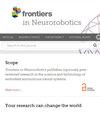Advancing autonomy through lifelong learning: a survey of autonomous intelligent systems
IF 2.6
4区 计算机科学
Q3 COMPUTER SCIENCE, ARTIFICIAL INTELLIGENCE
引用次数: 0
Abstract
The combination of lifelong learning algorithms with autonomous intelligent systems (AIS) is gaining popularity due to its ability to enhance AIS performance, but the existing summaries in related fields are insufficient. Therefore, it is necessary to systematically analyze the research on lifelong learning algorithms with autonomous intelligent systems, aiming to gain a better understanding of the current progress in this field. This paper presents a thorough review and analysis of the relevant work on the integration of lifelong learning algorithms and autonomous intelligent systems. Specifically, we investigate the diverse applications of lifelong learning algorithms in AIS’s domains such as autonomous driving, anomaly detection, robots, and emergency management, while assessing their impact on enhancing AIS performance and reliability. The challenging problems encountered in lifelong learning for AIS are summarized based on a profound understanding in literature review. The advanced and innovative development of lifelong learning algorithms for autonomous intelligent systems are discussed for offering valuable insights and guidance to researchers in this rapidly evolving field.通过终身学习提高自主性:自主智能系统调查
终身学习算法与自主智能系统(AIS)的结合因其能够提高自主智能系统的性能而越来越受欢迎,但现有相关领域的总结还不够充分。因此,有必要对终身学习算法与自主智能系统的研究进行系统分析,旨在更好地了解该领域的当前进展。本文对终身学习算法与自主智能系统集成的相关工作进行了全面回顾和分析。具体来说,我们研究了终身学习算法在自动智能系统领域的各种应用,如自动驾驶、异常检测、机器人和应急管理,同时评估了它们对提高自动智能系统性能和可靠性的影响。基于对文献综述的深刻理解,总结了自动识别系统终身学习中遇到的挑战性问题。讨论了自主智能系统终身学习算法的先进性和创新性发展,为这一快速发展领域的研究人员提供有价值的见解和指导。
本文章由计算机程序翻译,如有差异,请以英文原文为准。
求助全文
约1分钟内获得全文
求助全文
来源期刊

Frontiers in Neurorobotics
COMPUTER SCIENCE, ARTIFICIAL INTELLIGENCER-ROBOTICS
CiteScore
5.20
自引率
6.50%
发文量
250
审稿时长
14 weeks
期刊介绍:
Frontiers in Neurorobotics publishes rigorously peer-reviewed research in the science and technology of embodied autonomous neural systems. Specialty Chief Editors Alois C. Knoll and Florian Röhrbein at the Technische Universität München are supported by an outstanding Editorial Board of international experts. This multidisciplinary open-access journal is at the forefront of disseminating and communicating scientific knowledge and impactful discoveries to researchers, academics and the public worldwide.
Neural systems include brain-inspired algorithms (e.g. connectionist networks), computational models of biological neural networks (e.g. artificial spiking neural nets, large-scale simulations of neural microcircuits) and actual biological systems (e.g. in vivo and in vitro neural nets). The focus of the journal is the embodiment of such neural systems in artificial software and hardware devices, machines, robots or any other form of physical actuation. This also includes prosthetic devices, brain machine interfaces, wearable systems, micro-machines, furniture, home appliances, as well as systems for managing micro and macro infrastructures. Frontiers in Neurorobotics also aims to publish radically new tools and methods to study plasticity and development of autonomous self-learning systems that are capable of acquiring knowledge in an open-ended manner. Models complemented with experimental studies revealing self-organizing principles of embodied neural systems are welcome. Our journal also publishes on the micro and macro engineering and mechatronics of robotic devices driven by neural systems, as well as studies on the impact that such systems will have on our daily life.
 求助内容:
求助内容: 应助结果提醒方式:
应助结果提醒方式:


